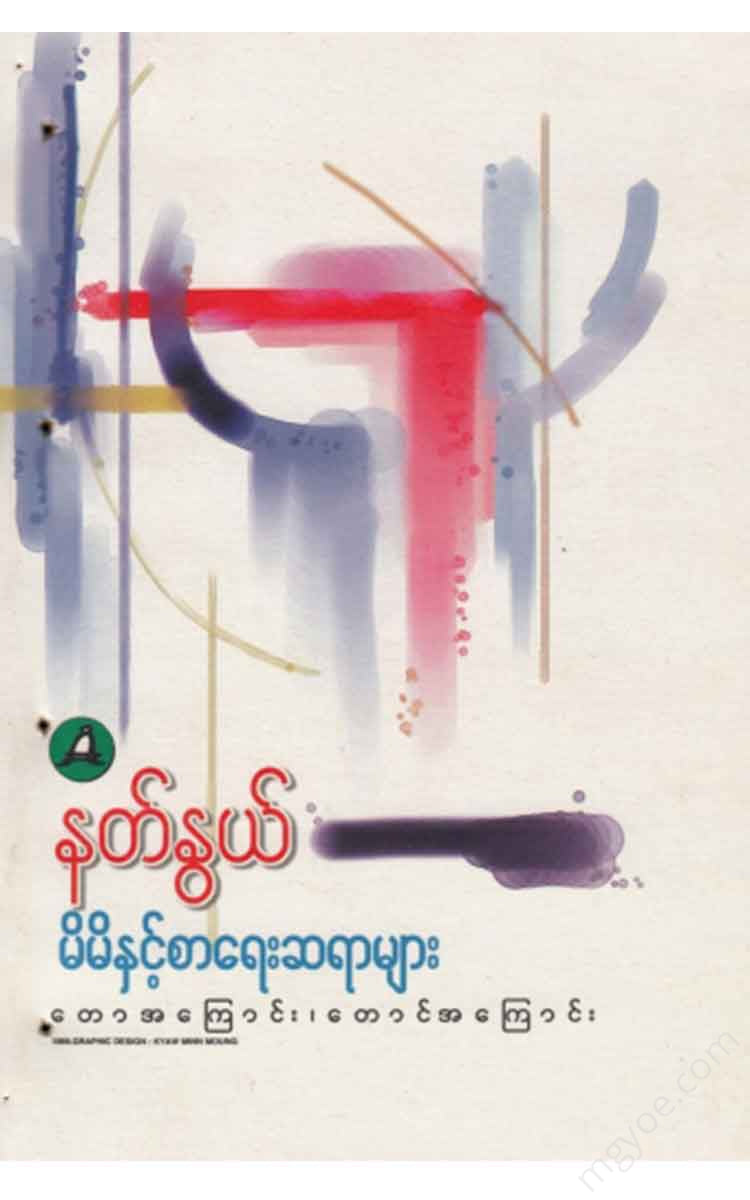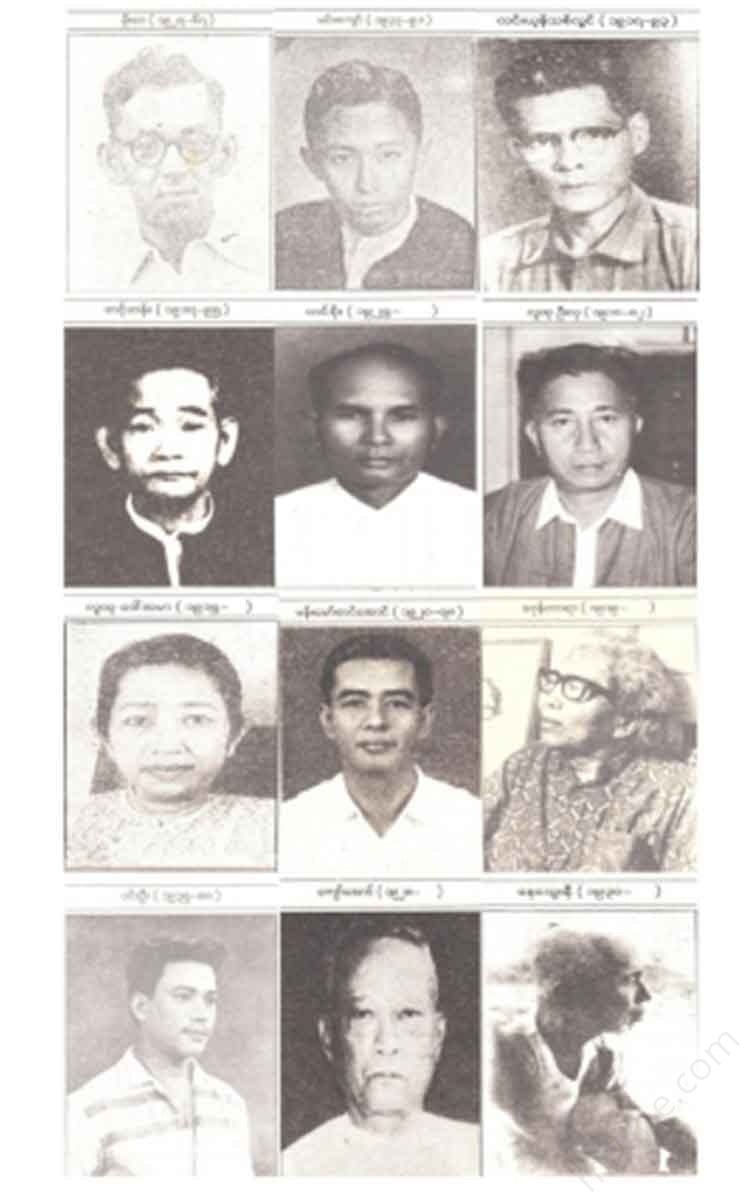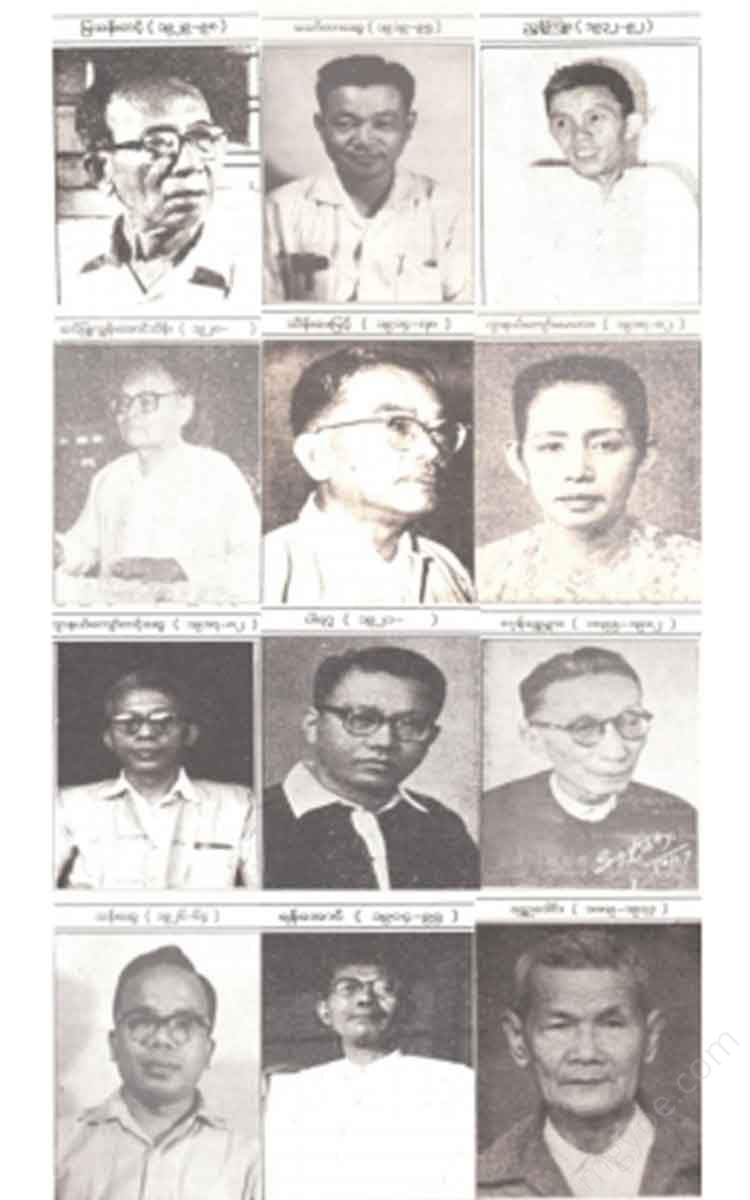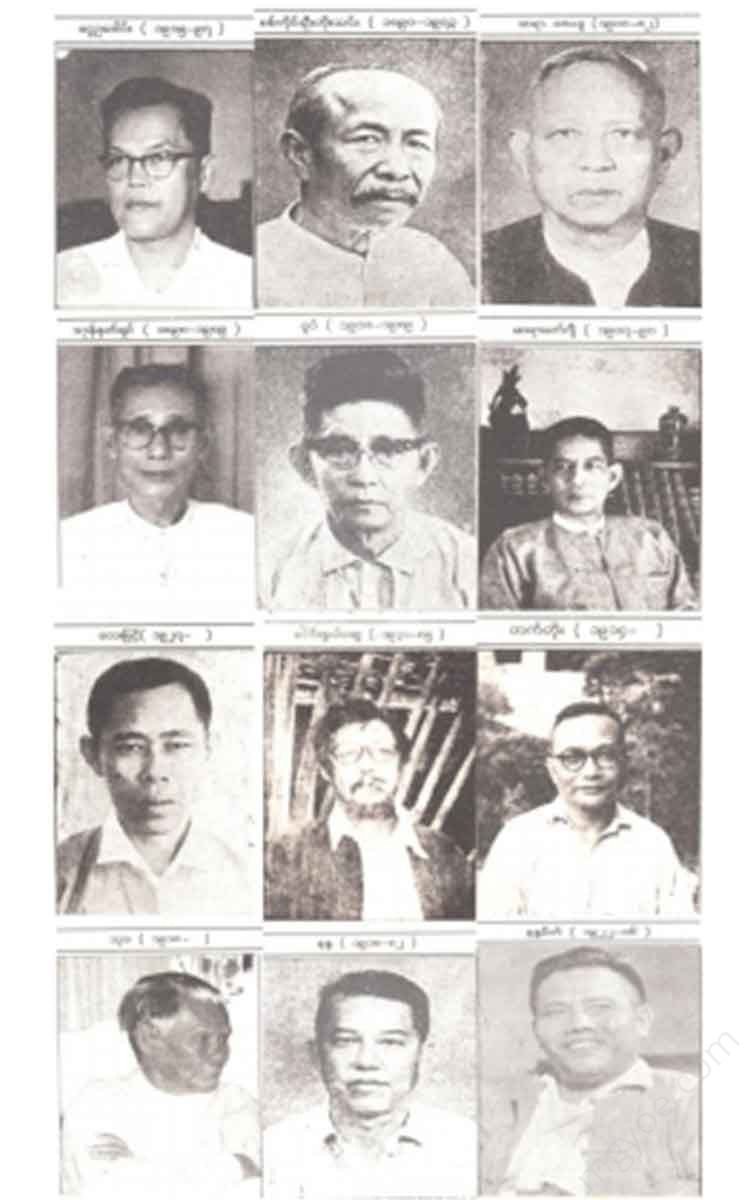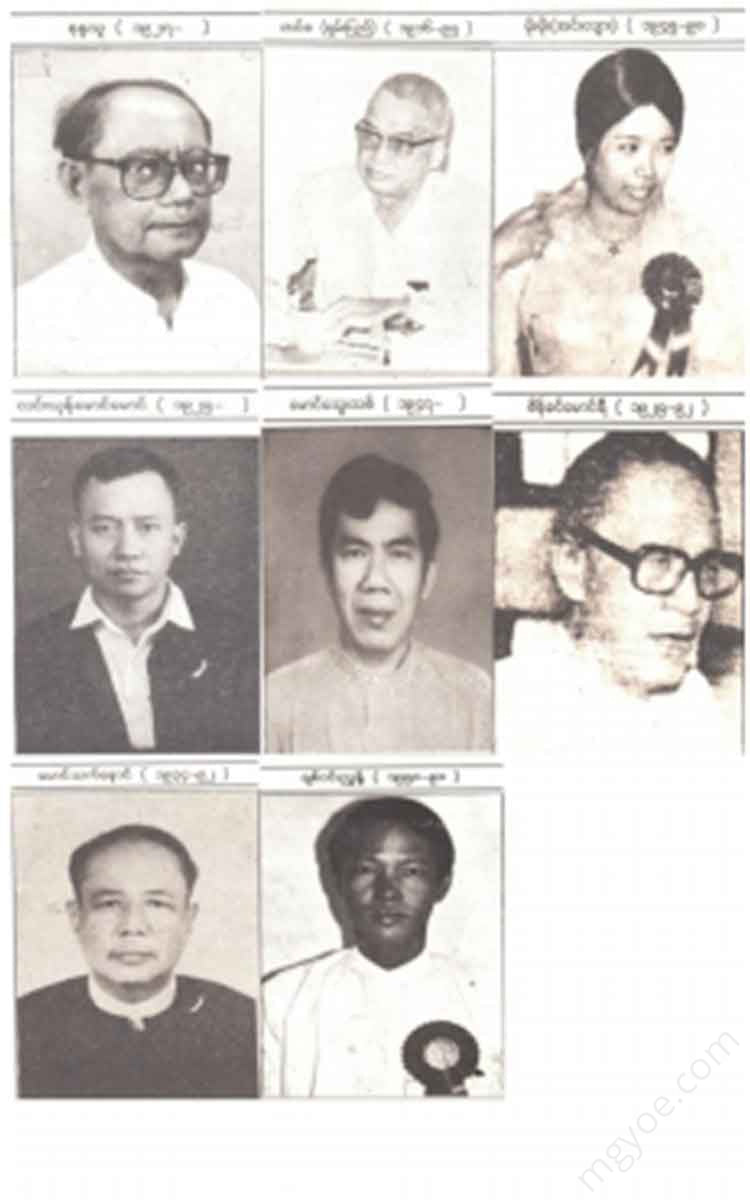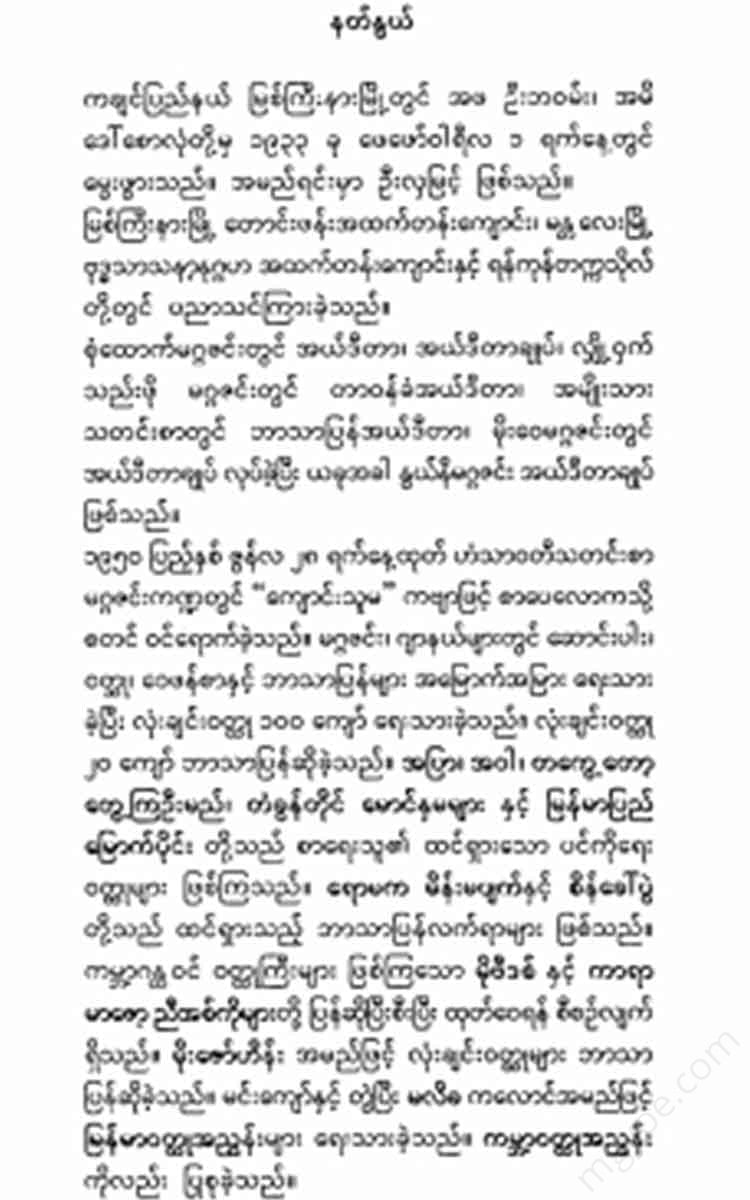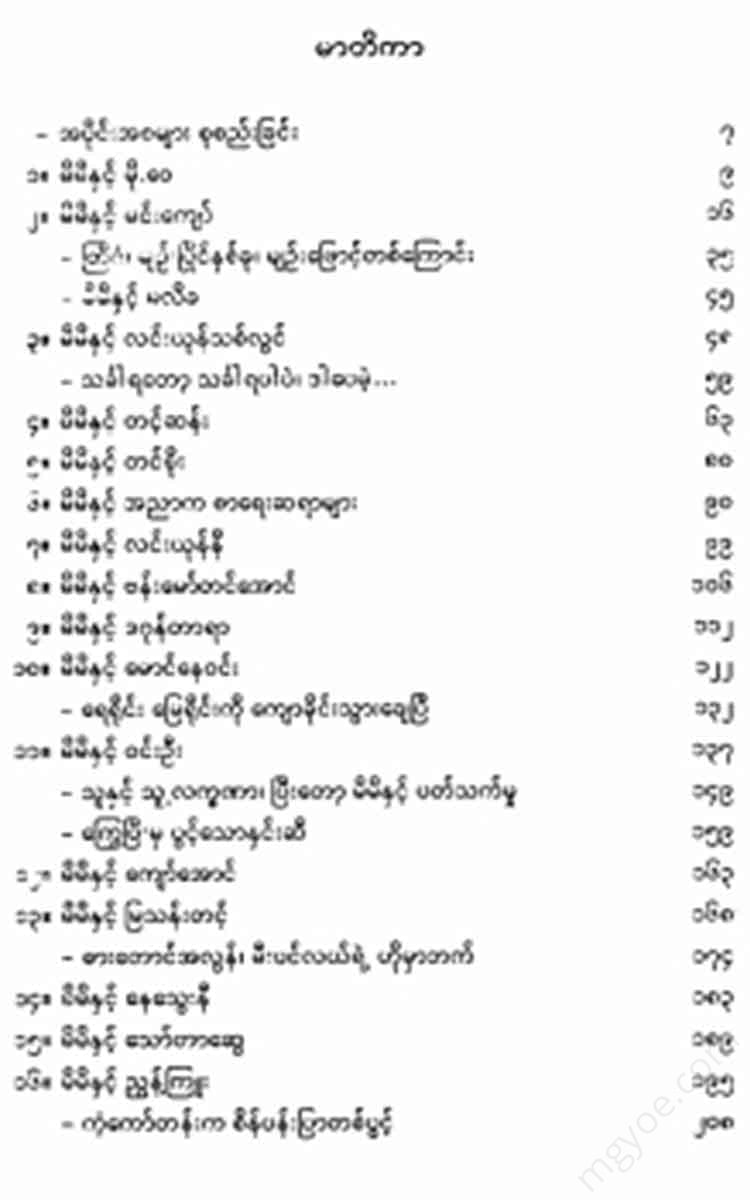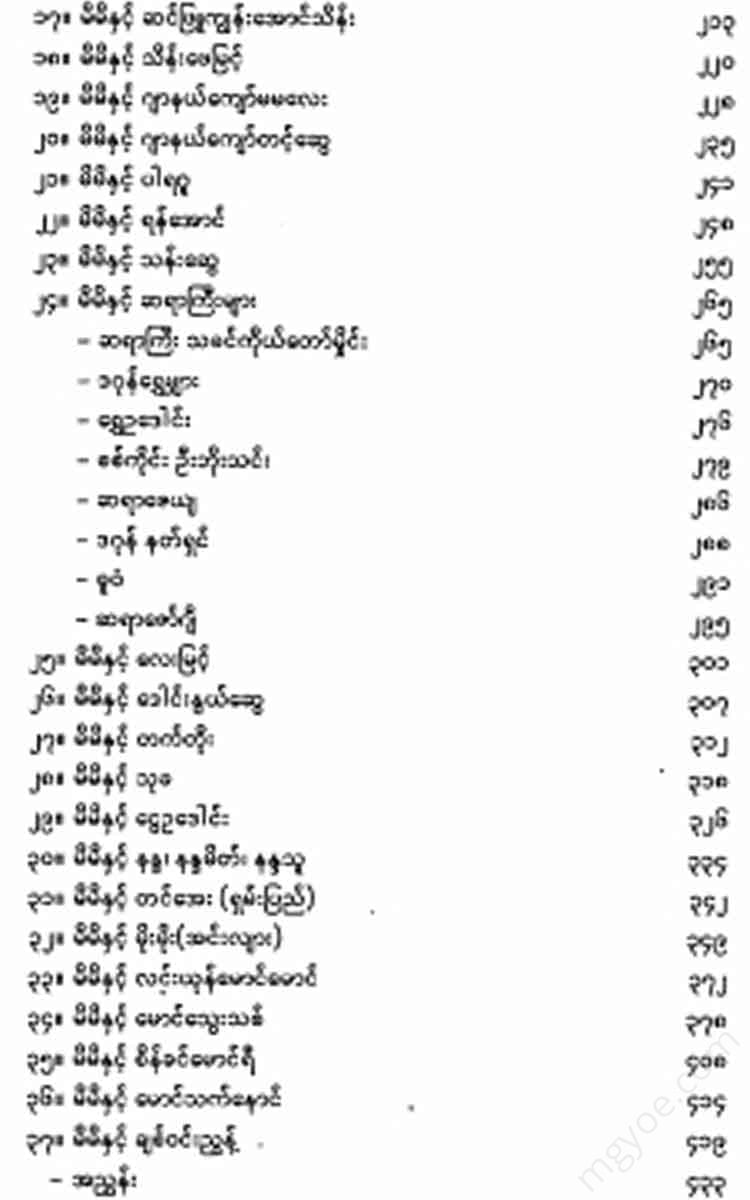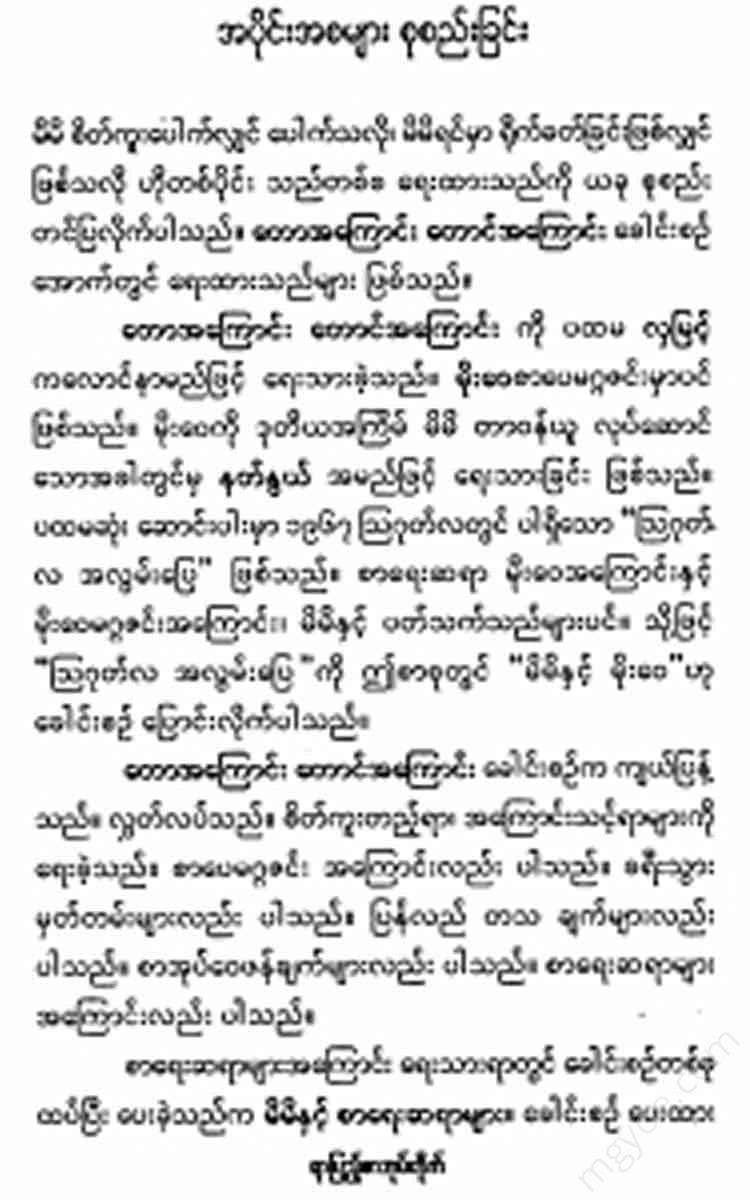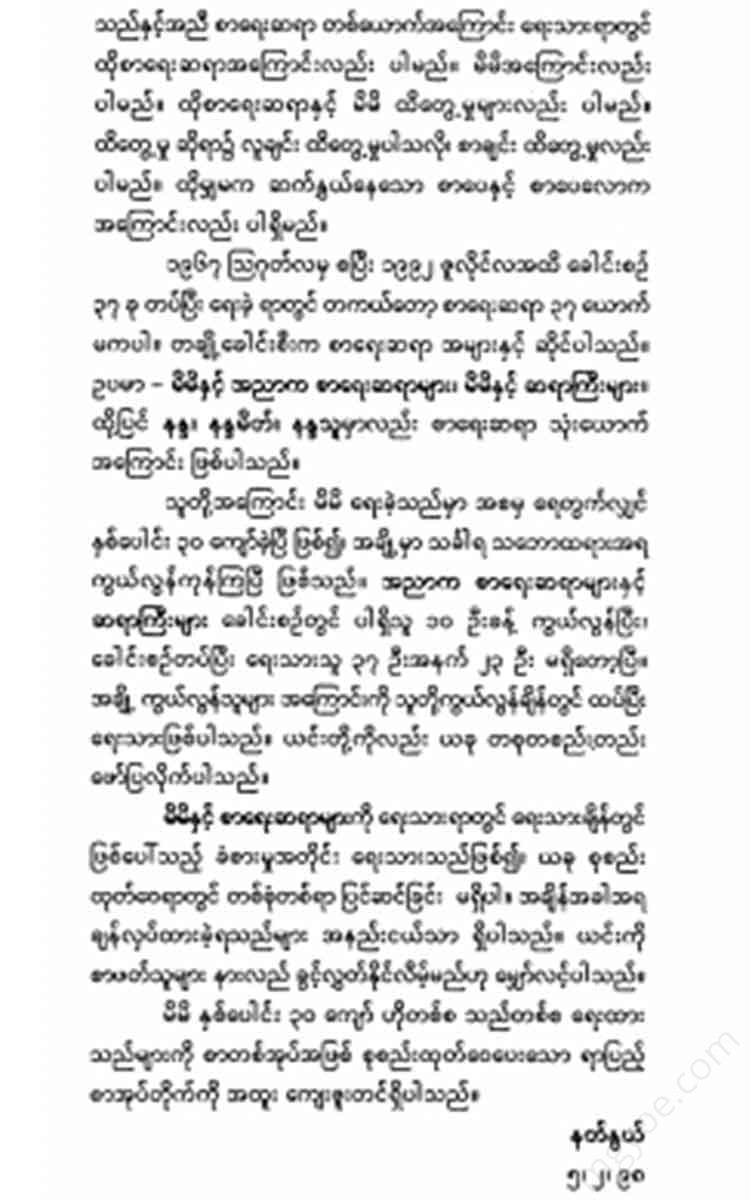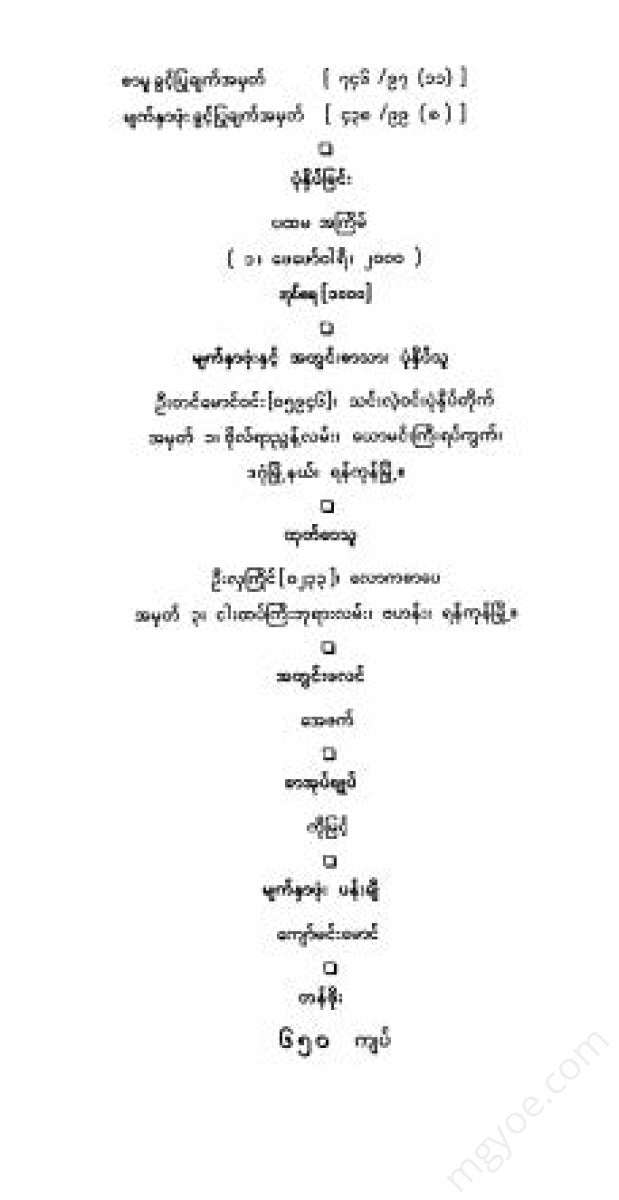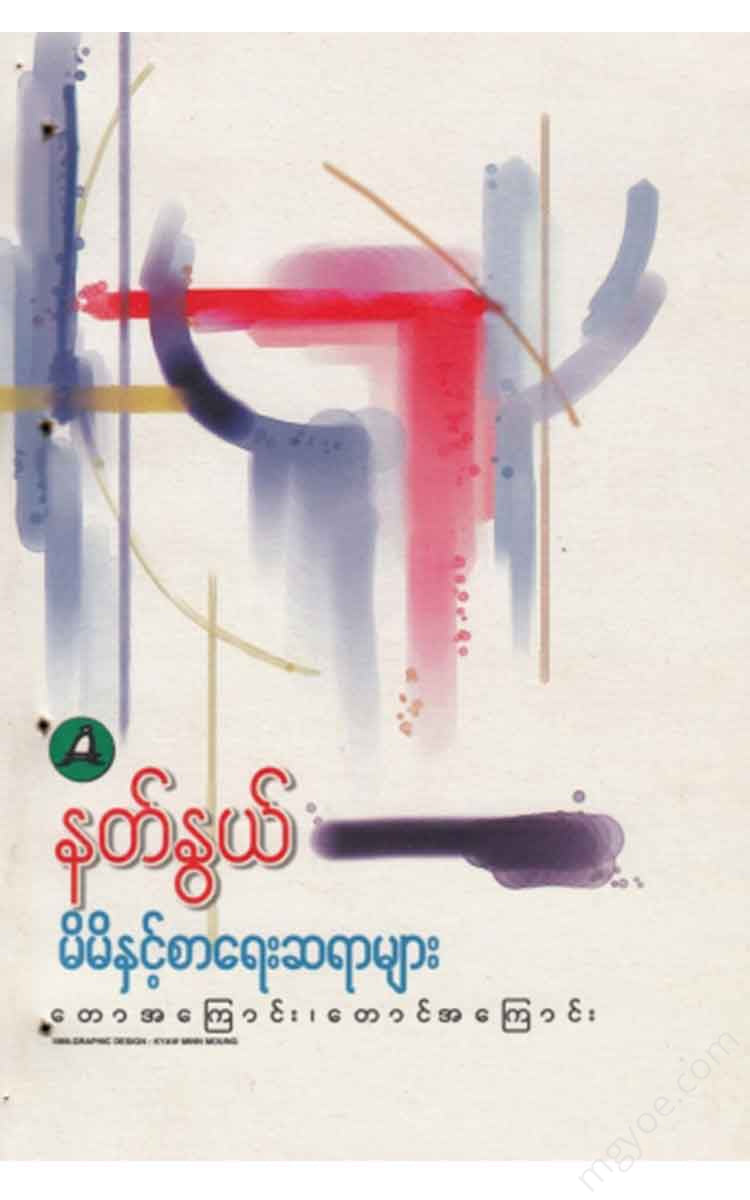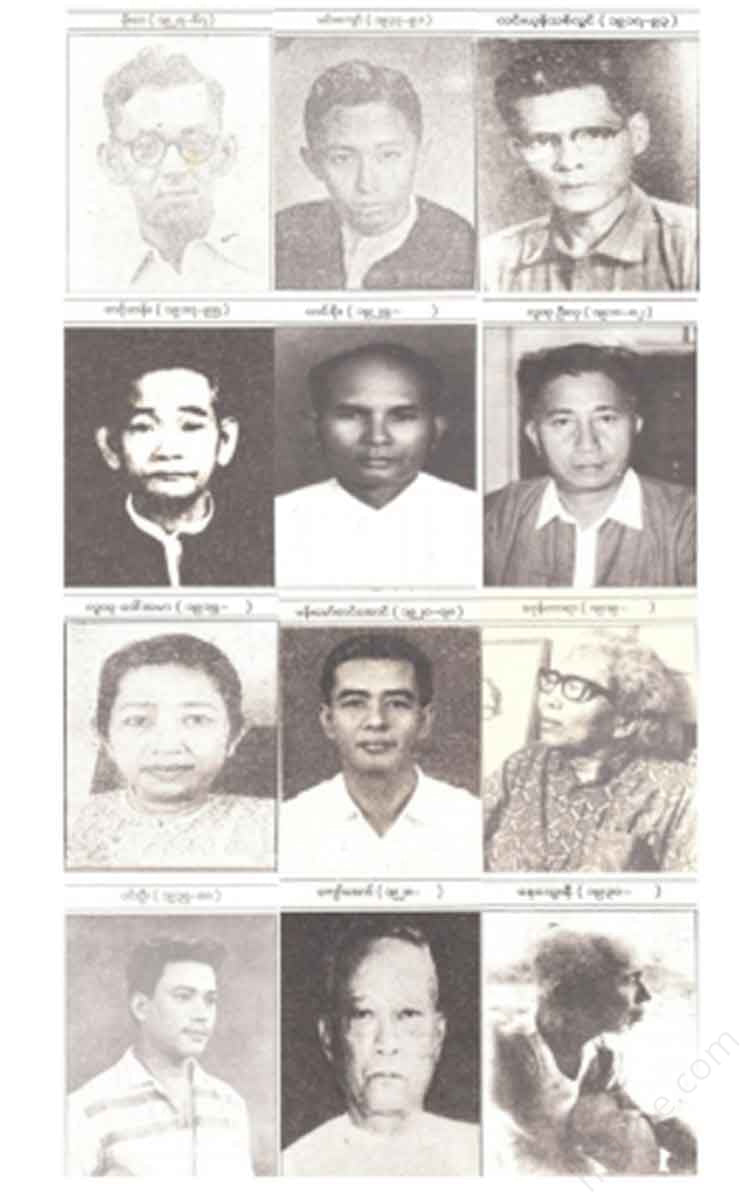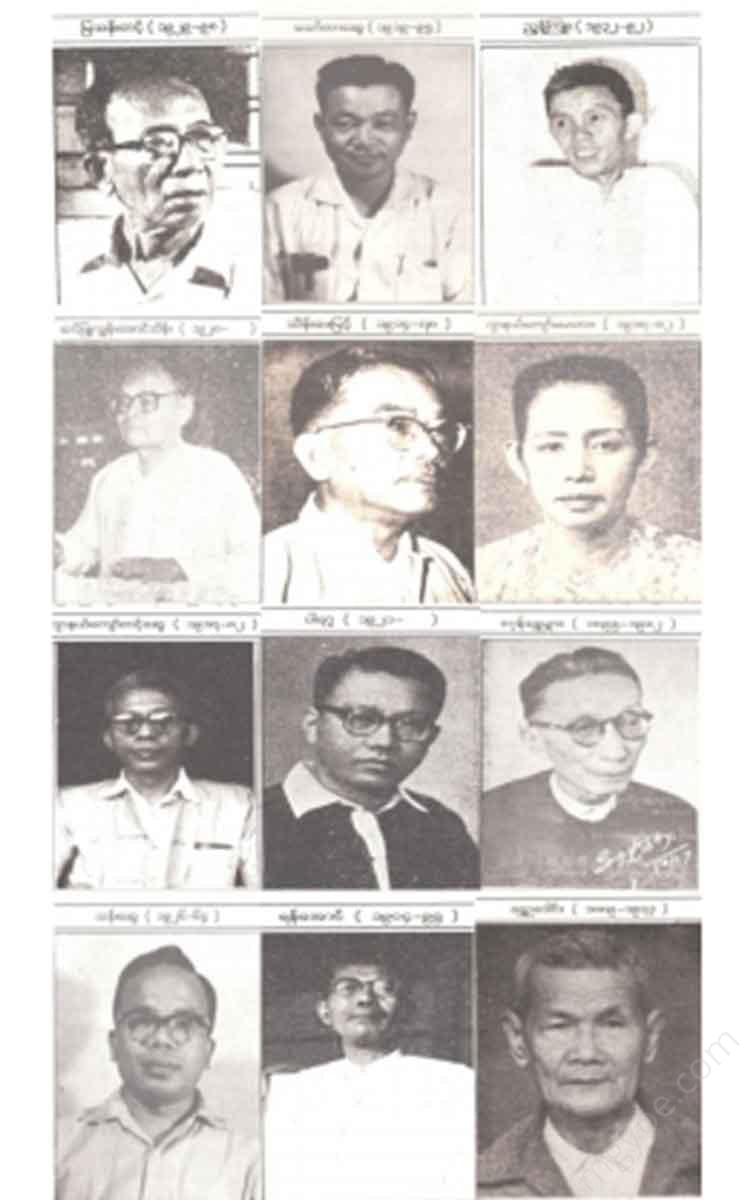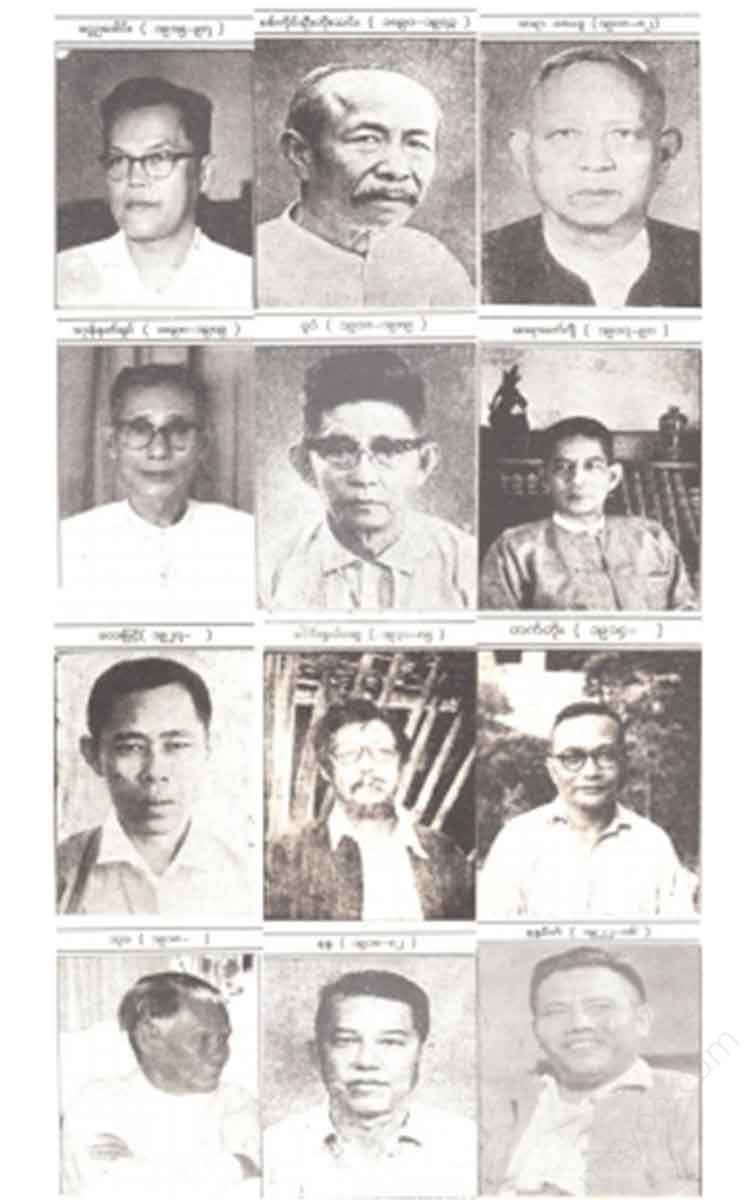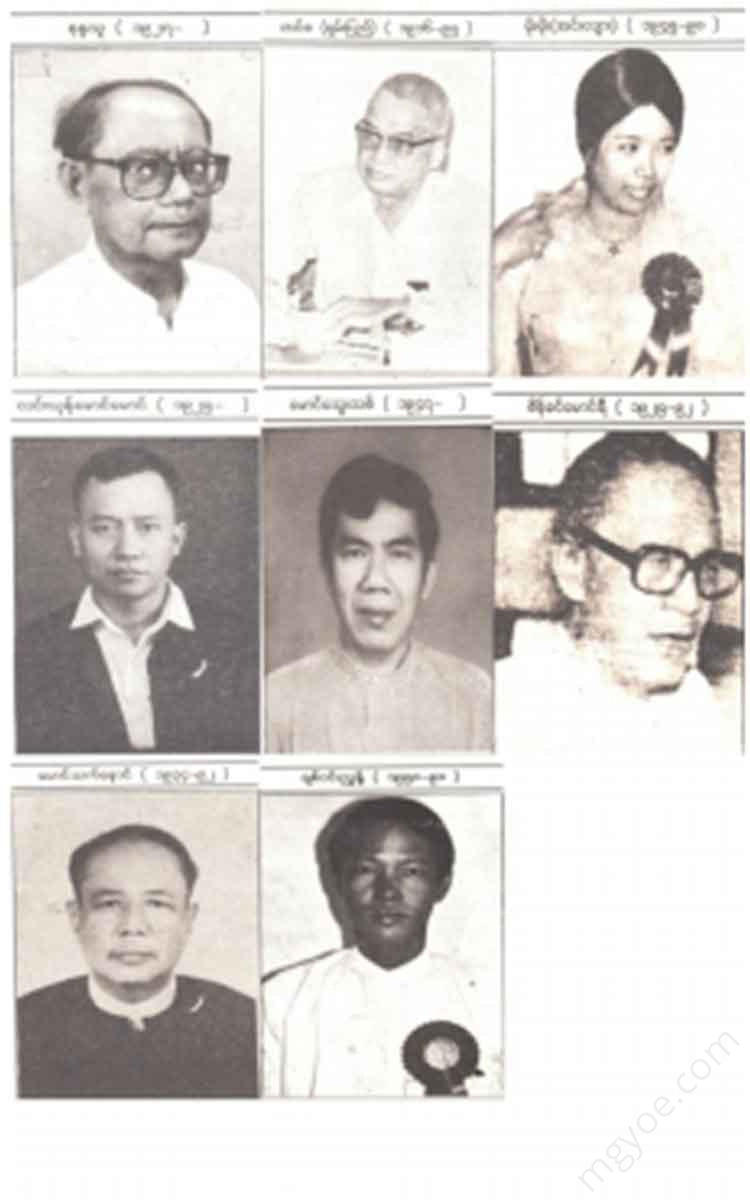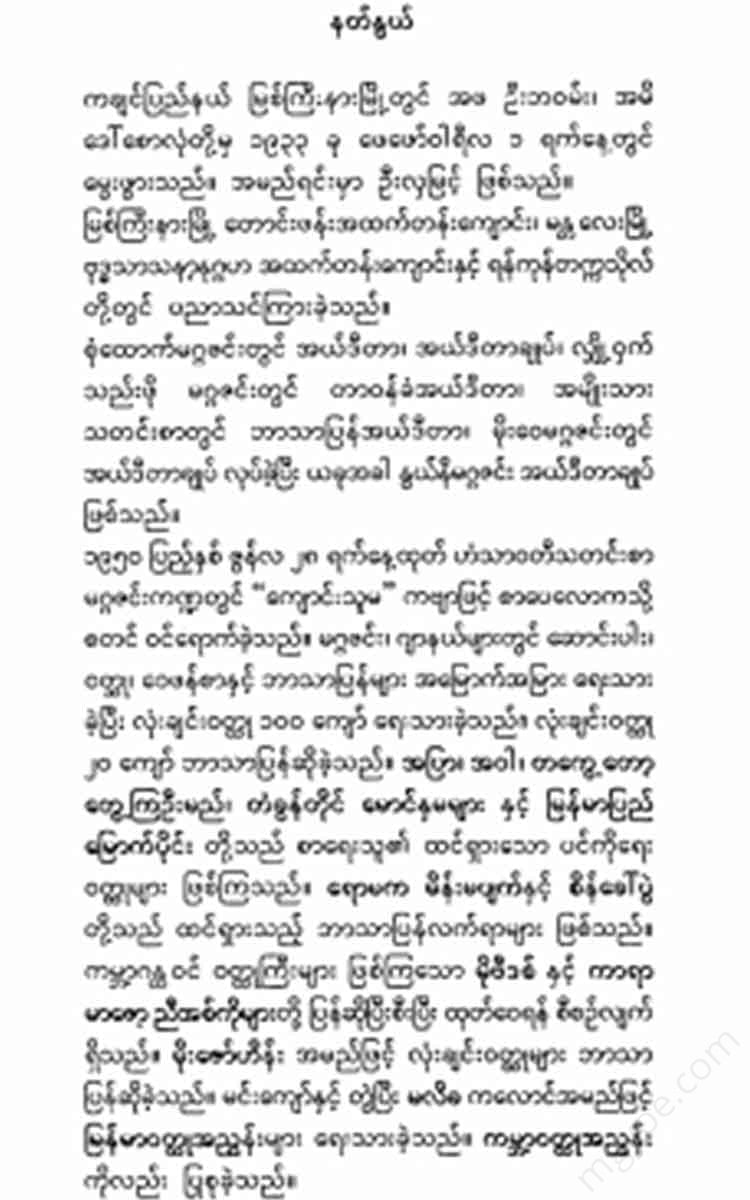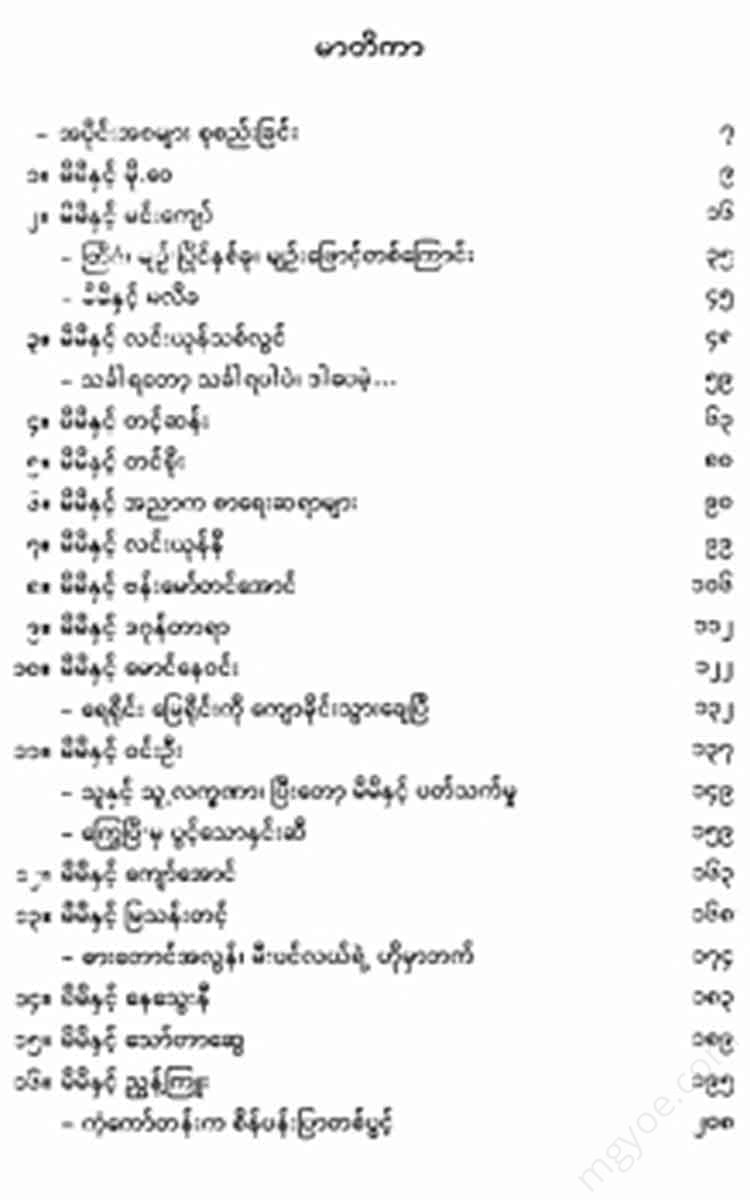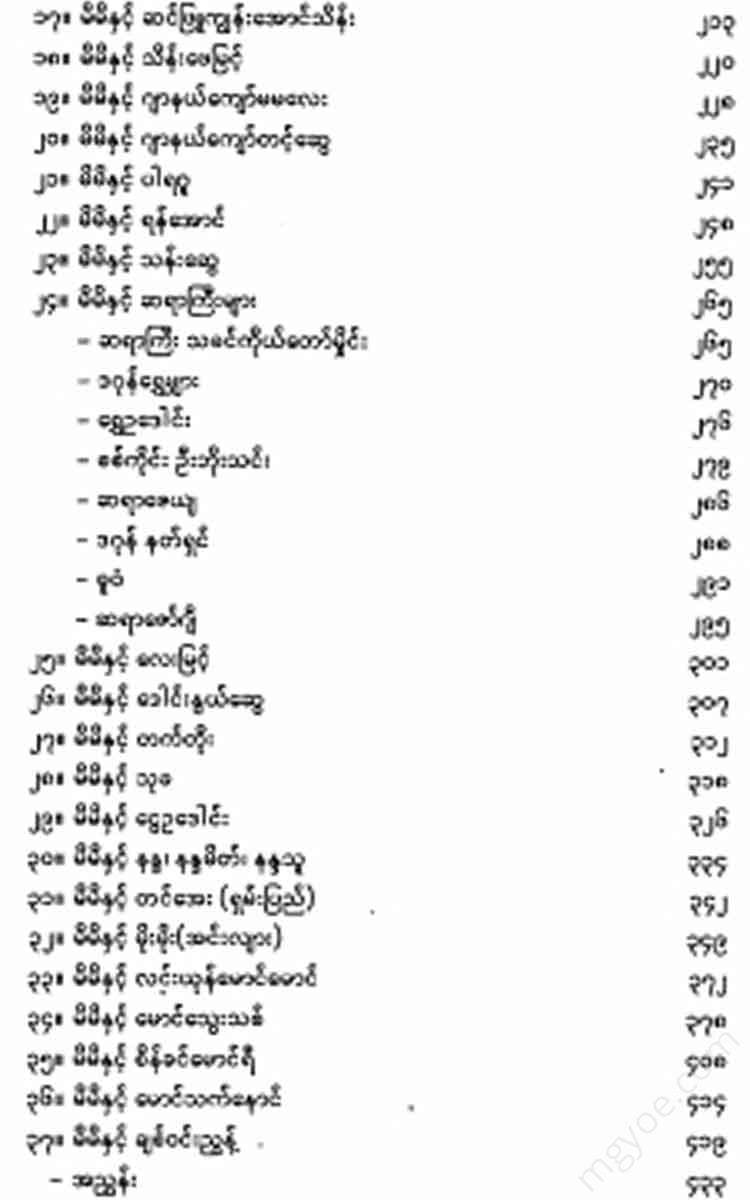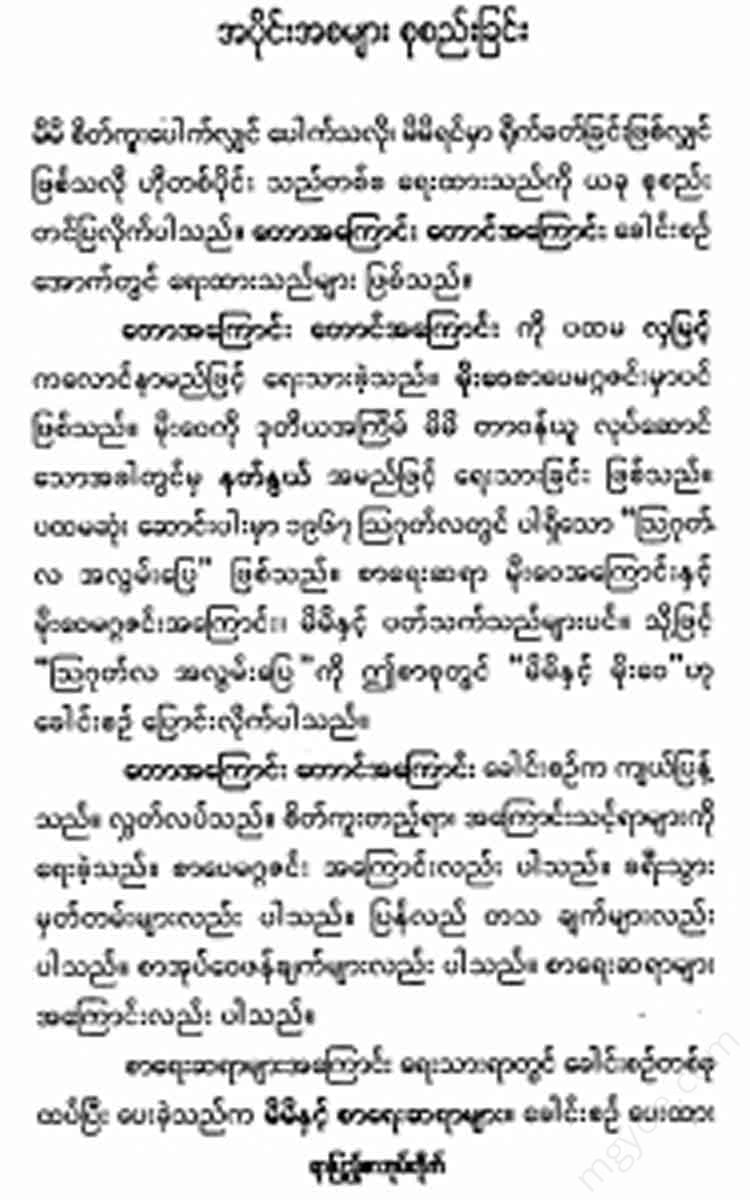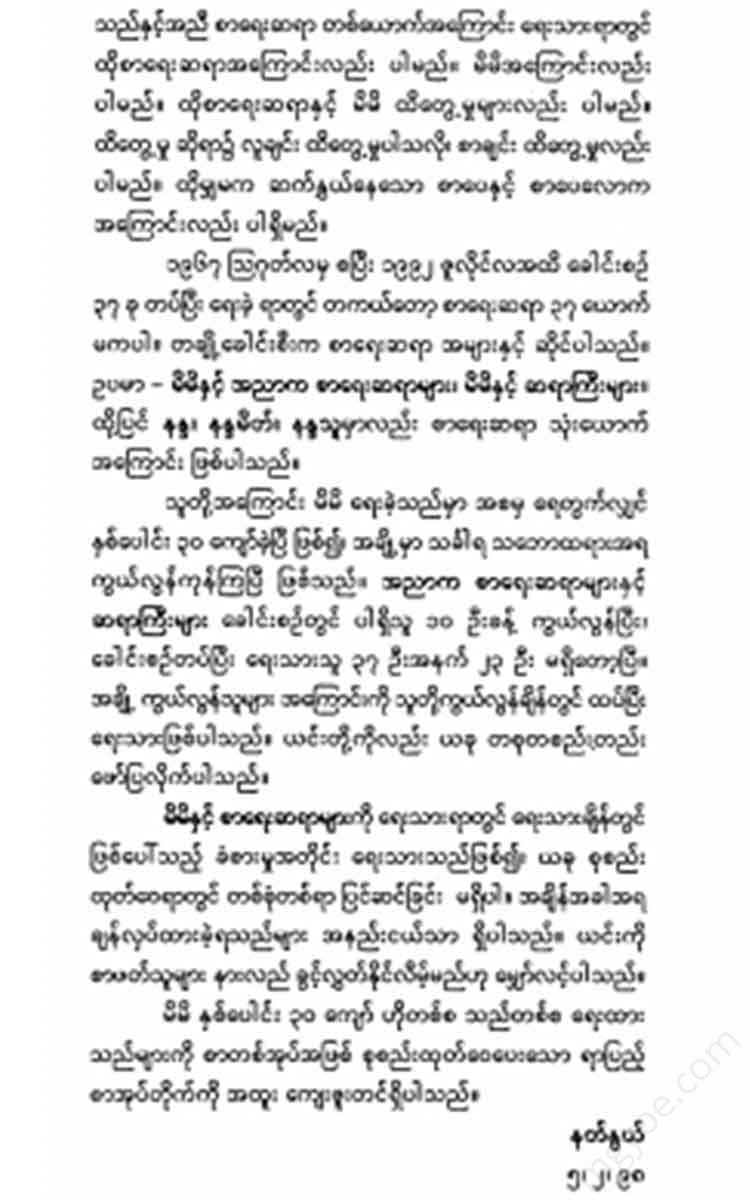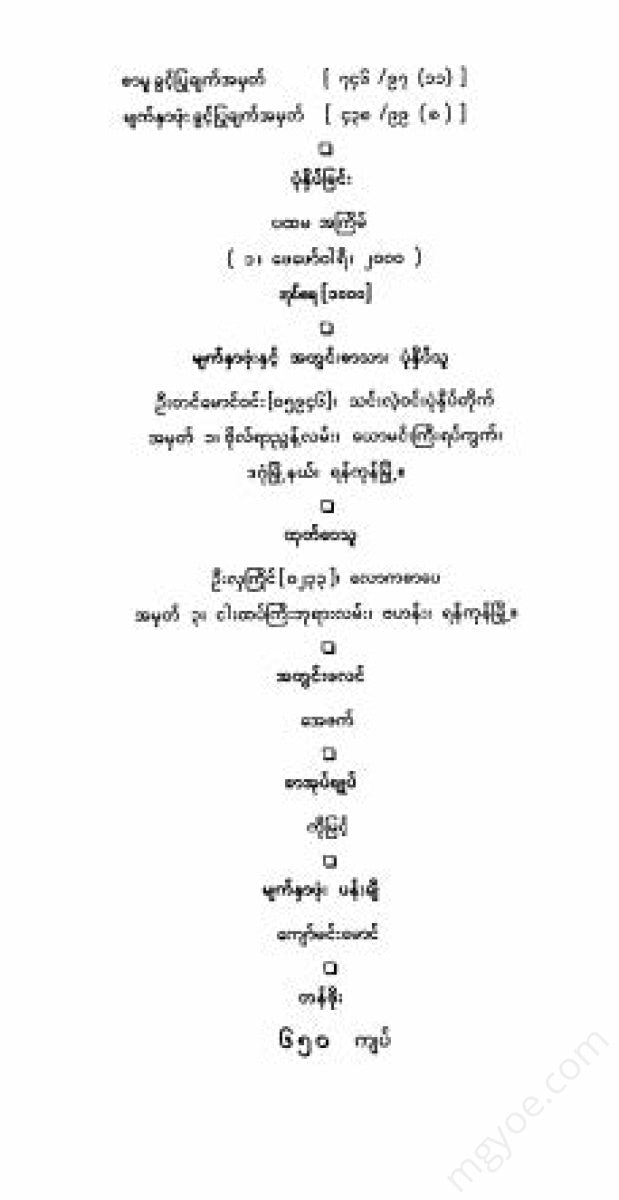Other Websites
Natnwe - Myself and the Writers
Natnwe - Myself and the Writers
Couldn't load pickup availability
Me and Moe Wai
It was raining that day. Just as snowflakes fall in December, so too do raindrops fall in August. The sky was overcast and gloomy. Every corner was filled with a sense of sadness.
The funeral song, filled with heartfelt emotions, captivates the hearts of those who are peacefully resting among the raindrops.
Thus, we were forced to part forever from our beloved Moe Wai.
He fell asleep in Christ on August 15, 1967. But he did not die. He did not die. In February 1968, Moe Wai Magazine was born. His name, the literature he wrote, and his beliefs continue to live on today.
It was a rainy day. It had been a long time. It had been a long time. It was 1953. 28 years ago. It was almost 30 years ago. I arrived at the detective magazine building on Brookings Road (now Bogalay Market Road). With the late writer Tint Htoo.
It is seen with rain.
It wasn't the first time I met him. I had met the publisher, U Sanni, and the editor-in-chief, Tint San. It seemed that Moe Wai's time hadn't come yet.
He arrived a little early. He arrived at the magazine office at two or three in the evening. When he arrived at the office, he wrote. He handled the magazine. And then what did he do? He asked U Sonny for a daily allowance. Back then, they worked by the day. They wrote by the day. Should we say that one day's writing is enough to eat one day's food?
What do you do when you have to count the days? Everyone gets together and watches movies. They line up in the five-story building. Back then, there were many theaters to watch. There were also many movies to watch. They watched one movie a day.
They ate something to satisfy their hunger. They often ate fried noodles. They were drunk after one meal. Sometimes they ate at the Chinese restaurant next to Win Win. Back then, you could buy a roast duck for sixty-five cents. The roast ducks there were so big that they were a bit big.
That's it. At that time, the group didn't drink alcohol. Moe Wai didn't drink alcohol yet. What did he do? Reading. Writing. Watching movies.
He reads a lot. What does he read? First, he reads newspapers. He reads almost all the news and articles in newspapers. He especially reads the Nation newspaper, from the advertisement to the headline. He likes the English writing in the Nation newspaper. Then he reads Time magazine. He likes the writing in Time magazine. He himself is good at English. He often tries to write in English. He never succeeds. He is not given the opportunity.
He reads almost all the weekly journals, newspapers, and monthly magazines. He also reads as many novels as he can get his hands on.
When it comes to reading English-language novels, I enjoy not only detective, mystery, and adventure novels, but also classics and contemporary fiction.
He could read a lot and write a lot. He wrote a lot of things under different pen names.
He started writing in 1946. He was writing before he was 20. He died at the age of 40.
In his 20 years of writing, he wrote more than three hundred books on poetry, translation and academic subjects under the pen names Moe Wai, Khin Maung Gyi, Bo Thein Tan, Thet Maw, San Lay Maung, and Professor U Thwin. He wrote more than six hundred articles in the press. His first short story, Tin Maung Swe, was A Drop of Tears, which appeared in the magazine Deng Dung. His first collection was 400,000.
He is known for his novels Tin Maung Swe, Naw Tha Mu (1952), which is based on ethnic unity, Thit U Thazin (1953), which is based on resistance to the Kuomintang invasion, and Lai Lai Rau Ni (1953), which is based on resistance to feudalism and imperialism, and Mong Thit Shwe (1953), which is based on resistance to imperialism and imperialism, are also notable successes.
His notable translated novels include Oliver Twist, The Green Soil, Chotamar, Party Member, and The Sea Wolf.
Let him read a lot. He writes a lot.
That day he was a little late. He arrived at three o'clock. He dropped the worn-out cotton bag that was hanging from his shoulder onto the table.
There was a loud thud. There was a heavy object in the bag. It wasn’t the Puma gun that freelance detective Tin Maung Swe was carrying in his shoulder bag. It was just a two-shot flashlight. He would be late for home. He had to walk a long way from the bus station to his house. The road was long. The road was dark. The road was bad. But the road was called Thukha.
He took out an English book from his bag, even though he was still on the road. The book was torn. Then he took out a yellow piece of unlined sketch paper. The paper was wrinkled. Then he took out a black fountain pen and began to write.
Then U Sanni and Ko Tint San introduced themselves to him. He looked at me from the writing desk. He greeted me. With a warm and friendly manner. But the writing did not stop.
That's his habit. His habit of writing. He writes while he talks. He writes while he talks. After a while, he told U Sonny.
"I'm hungry, tea shop. There are guests here, let's go, let's go. Let's go to the tea shop."
He stuttered when he spoke. U Sonny laughed, showing his gold teeth.
"I'll go, but I haven't written anything when you come. I'm just going to have tea."
He and U Sonny are very close. They are like brothers. They have been together for a long time. They are business partners. They are colleagues. They are also the founders of the modern literature library.
They went to the tea shop. He took a notebook with some writing paper. They talked in the tea shop. He continued writing while talking, drinking tea, and eating bread.
"Here, here, aren't you feeding him? He's a writer from the countryside."
After a while, he said. U Sonny grinned, “Heh heh heh, I’ll feed you, just finish writing the letter.” That night, U Sonny fed him. Not only that, he showed him a movie. Not only that. “You…you give him the manuscript fee…give him.” The editor-in-chief asked for the manuscript fee. The publisher paid for it. It was his first manuscript fee.
At that time, I had already written three or four articles for a detective magazine. It was my first time receiving a manuscript fee since I arrived in Yangon.
But they are all kind to me. They encourage me. They help me.
They advised me to live in Yangon. They told me to work for a detective magazine. They invited me to work and live with them. What else do I need to think about?
He returned to Mandalay. Within a few days, he was back in Yangon. On the one hand, he was studying at Yangon University. On the other hand, he was writing for a detective magazine. He worked for a detective magazine. He earned two kyats a day.
In this way, I had to work with him. I had to get close to him.
In 1956, he separated from her temporarily. He got married. He returned to Mandalay. He returned to Yangon. He worked in Nyein Sapay. He worked in Pyidaw Thit Journal. He worked in the National Newspaper. He worked in Ko Tin Aung Masan Sapay. He worked in the Secret Magazine.
Sometimes I meet the buyer, sometimes I don't.
I met him again in 1962. When Mya Saepyar took over the publishing of the detective magazine, I was involved.
From then on, I worked with him. He and I were responsible for producing the detective magazine. He was the editor-in-chief. I was the editor-in-chief.
But he has left the magazine business to himself. He writes. He reads. But he watches movies. He spends time with friends.
He loves people. People love him. He doesn't hate anyone. He is always with people. He is happy. He is happy for others too.
He is especially happy for his friends. He is more happy. He is also happy and joyful with them.
If I had to talk about it, it would be August.
It was raining that day.
August 1st is the anniversary of the Bagan Library.
Every year, Bagan New Year's Day is celebrated. A Bagan New Year's book is published. Writers and friends are invited and treated to food and drinks. It's a quiet place.
On the day of the Bagan New Year, writers and literary friends meet. They talk. They discuss. They eat and drink happily.
That year, the Bagan Year Book was his Northern Myanmar. He gave the book as a gift to those who visited on that day.
However, Moe Wai had already received the book in advance. Not only that, he had already read it in advance.
He criticizes northern Burma. He criticizes himself. Then he praises himself. He praises the publisher.
He is happy.
He wished the Bagan Library and the northern Myanmar people a happy meal.
Then they were told to sing happily. They were told to dance happily. No one objected. Everyone sang happily and danced happily.
Everyone was happy. They were happy. They were memorable.
He died in August of the following year.
He is no more now. But there is a magazine called Moe Wai that commemorates him. One thing that remains unanswered is the Bagan Bookstore and the Bagan Book Publisher.
Maung Ko U La, the founder and publisher of the Gyan Bookstore, passed away. It has been a long time since the Pagan New Year's Eve celebration was held in the rainy months of August. Similarly, it has been a long time since Pagan books have been published. August is a month of nostalgia.
(Original title: "August Love")
(Moe Wai, August, 1981)
